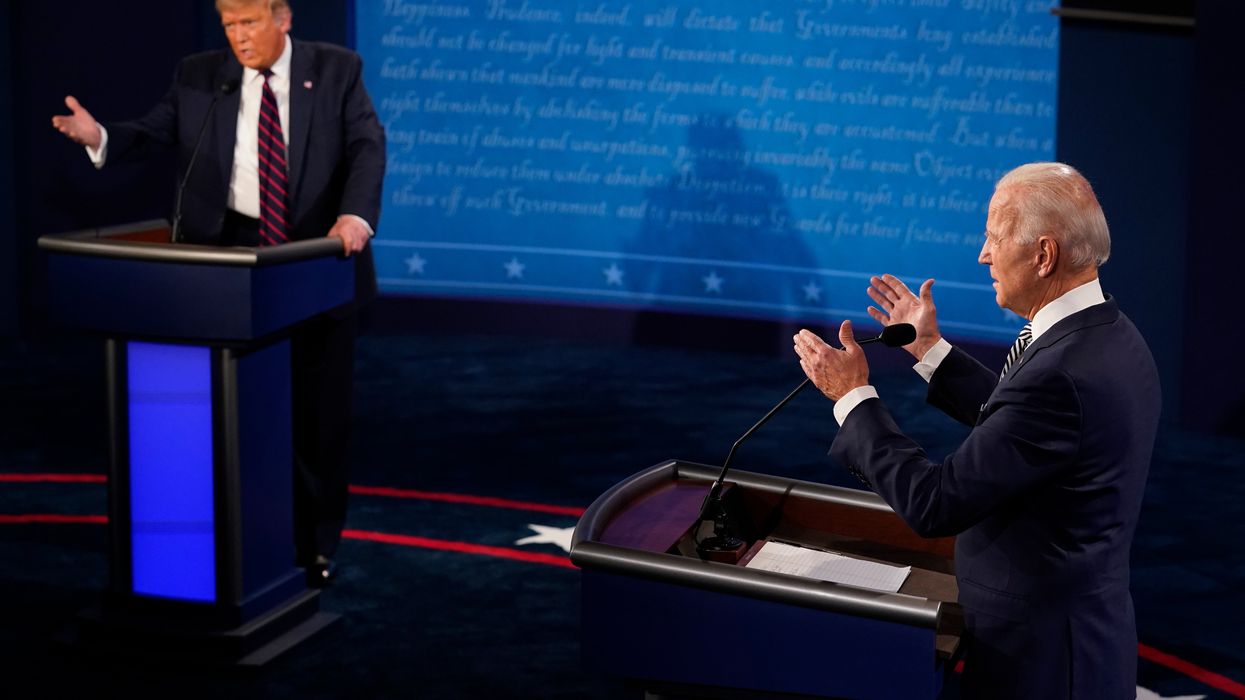Ready is the democracy program director of the U.S. Public Interest Research Group, the network of state organizations that use research, grassroots organizing and direct advocacy to advance for social change.
As bizarre as it may seem, last year's presidential election provided us with a bona fide highlight.
No doubt, many Americans would be happy to never hear the phrase "2020 election" ever again. But despite all the chaos and cacophony, that campaign featured an important positive development for the health of our democracy.
While big money has been a powerful part of American politics since the country's founding, the voices of regular people, represented by small-dollar donors, may finally be coming to the fore. Not only is this development important in its own right, but it's also a change that impacts the landscape for presidential campaign finance reform.
In a democracy based on the principle of one person, one vote, all citizens should have the same ability to participate in the political process. But well before anyone can cast a ballot, the people able to write the biggest checks to candidates have too often determined who can even run, and thereby go on to win, elections. As a result, the theory goes, those who don't have big money, or access to it, have no voice and opportunity to meaningfully participate in elections. To address this power imbalance, reformers have long advocated for solutions such as small-donor empowerment systems.
But while progress on reform has been slow, stymied by bad Supreme Court decisions and partisan gridlock, 2020 proved the landscape may be changing. It was a breakthrough campaign season for small-donor power in presidential elections. New technology transformed the way many presidential candidates chose to fundraise. Relying on big money was no longer the only viable way to collect campaign cash. This was clear in the primaries, when many candidates were able to rely on contributions below $200 to quickly raise enough to launch viable campaigns.
But financial supporters didn't just have a say in the primaries. The final fundraising numbers from the election also show that relying on small-dollar donors can be sustainable for a fall campaign. In the presidential race, donations from people giving less than $200 accounted for 43 percent of all the money given directly to Joe Biden and Donald Trump. This is twice as big a share as four years earlier, my organization has calculated. In 2016, just 21 percent of the money collected by Trump and Hillary Clinton was in increments below $200, the standard definition of a "small-dollar" gift.
The upshot: Small-dollar donors now contribute a significant portion of the presidential fundraising pie.
More importantly, the fast rise in this type of funding is not only a matter of percentages. It is also revealed in raw dollars. At $784 million, the amount raised by the major party nominees last year was more than four times as much as in 2016. Put another way, Trump collected more money just from his small-dollar donors last year than he did from all of his donors when he won the presidency.
The bottom line: It's no longer really true to say it's impossible to run a viable presidential campaign by relying on small-dollar donors.
So what does this mean for reformers, like my organization, who have long been working to change campaign finance laws to boost the political power of people who don't have many thousands of dollars at their disposal?
Well, it's back to the drawing board — but in a good way. With this new level of small-donor participation, such solutions as matching funds for presidential candidates don't really make sense any more.
Providing $6 in federal money for every $1 raised in small increments — the ratio for presidential candidates proposed in HR 1, the democracy overhaul bill now before the Senate after passing the House — would have had a perverse effect on the 2020 campaign: It would have given Biden and Trump another $4.7 billion to spend.
In what was already the most expensive presidential contest ever, that would, incredibly, be more than twice as much as what the two of them raised on their own.
Clearly, matching the small-dollar donations to last year's presidential candidates would have been serious overkill. Nevertheless, we should still encourage more participation from people with only relatively modest amounts to contribute.
Even with the rise in such giving, experts estimate only 10 percent of Americans make any donations to candidates. Reinstating a refundable tax credit for small contributions would help get more people involved. Not only could that tax break help propel the trend toward more and more small-dollar giving, but the reform also has the added benefit of support from across the political spectrum.
Of course, none of these reforms would address the huge sums being poured into campaigns by millionaires, corporations, trade associations, unions and all manner of politically active special interests. Nothing short of a constitutional amendment will close the loophole that permits them to "independently"spend as much as they want to help their candidates of choice. And the recent surge in small-donor giving at the presidential level probably will never be realized in many campaigns for the Senate and House.
Still, when it comes to presidential elections, we are closer than ever to an America where the size of a person's wallet does not determine the size of their political voice.




















